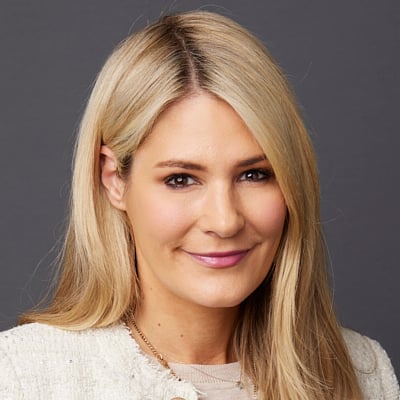Minimizing Antitrust Risks in Responding to COVID-19
The COVID-19 crisis is the type of economic shock that will increase companies’ risk of civil class action antitrust litigation for years, even decades, to come. Companies across the country are still defending themselves from the onslaught of civil conspiracy antitrust claims that followed the Great Recession. During the Great Recession, companies often had to change business strategies in response to a changed economy, for example by reducing output to respond to decreased consumer demand. The business reasons for those decisions were obvious at the time — so obvious that companies did not always document them. Not surprisingly, companies that made similar products reacted to the Great Recession similarly, just as we all decide independently to use umbrellas when walking through the rain.
Afterwards, many industries — particularly those with commodity-like products — faced class action antitrust litigation claiming that companies’ decisions to reduce output in the Great Recession were not made unilaterally, but rather were the product of illegal conspiracies to reduce competition in violation of Section 1 of the Sherman Act. In short, these cases alleged that companies agreed to use umbrellas in the rain. Despite the obvious underlying dislogic of these cases, courts typically did not dismiss them, and they have resulted in years of costs and disruption for companies that were simply trying to run their business as profitably as possible in the wake of economic disruption.
COVID-19 will likely be no different. Companies across countless industries will need to modify their business strategies as they navigate the economic effects of the pandemic. For some, it will mean reducing output and employee compensation. Capital expenditures that would have increased output may be delayed. For others, it may mean focusing on retail rather than distributor channels.
These decisions make obvious sense for companies today given the current environment. But even a company’s independent change in business strategy in response to an economic crisis can expose the company to private antitrust litigation.1 This is because antitrust law does not require evidence of a “smoking gun” to establish an agreement among competitors. Instead, plaintiffs may bring antitrust claims based on allegations of (i) “parallel conduct” among competitors and (ii) “plus” factors. Parallel conduct may be found when competitors take similar actions at similar times, such as reducing output or increasing price. Plus factors include allegations that competitors had an “opportunity to conspire,” including at trade association meetings or other industry events.
This standard lends itself to increased antitrust claims following the COVID-19 crisis — even for companies that did nothing wrong. Indeed, the actions a company may take to survive the crisis are precisely the type that may be labeled evidence of a conspiracy years from now. First, there is an increased chance of “parallel” conduct: It is common sense that companies in the same industry may react similarly to the pandemic. For example, the worldwide economic downturn and high rates of unemployment have led to a catastrophic loss in demand for certain products; many companies will react by reducing output. This is economically rational unilateral conduct, but it can still be used by antitrust plaintiffs to claim parallel conduct if output is reduced by more than one competitor. Second, the pandemic and associated economic crises are likely to lead to increased trade association activity as industries navigate urgent and novel issues — such as protecting the health and safety of workers. Trade association activity often forms the basis of antitrust plaintiffs’ allegations of opportunities to conspire. In particular, courts consider trade association involvement when it is close-in-time to a change in business practice, as will likely be the case here given how quickly the pandemic is converging with a global economic crisis.
Business decisions particularly vulnerable to future antitrust claims include:
- Changes in output, capacity, or price resulting from changes in demand or production costs (particularly in industries dealing in commodity-like products);
- Changes in salaries, wages, compensation, or hiring practices; or
- Changes in customers, channels, suppliers, or regions served.
Guidelines for Minimizing Antitrust Risk and Liability
Executives and legal counsel can take certain steps now to minimize antitrust risks and liability later.
- Remind employees to be sensitive to antitrust guidelines. It is critical to remind all personnel that they must continue to follow antitrust rules and guidelines. Specifically, all personnel should continue to be sensitive to the antitrust risks inherent in any communication with competitors, and should avoid all communications or conversations with competitors concerning prices, costs, production, capacity, future business plans, wages, compensation, customers, channels, and territories. Personnel should also be reminded that any documentation from this period (e.g., emails, texts, trade association minutes) will face close scrutiny if a lawsuit is brought, so special care must be taken to avoid making statements that could be taken out of context.
- Clearly document independent economic reasons for business changes. What may today seem like an obvious decision based on a global pandemic may not seem so straightforward years from now. It is therefore critical to document the reasons behind a company’s crisis response measures. Any changes in business practices — including any changes in output, capacity, pricing, wages, compensation, customers, channels, suppliers, distributors, terms and conditions of sale, or geographic regions — should be documented in writing. Documentation should specify the unilateral economic rationale for the change and include all analysis that went into the business decision, including any financial modeling. Any board or other internal meetings where such changes are discussed should be memorialized with detailed meeting minutes similarly laying out the unilateral economic rationale. Spending a few hours now to make explicit what changes the company is making in light of COVID-19, and documenting why those changes are in the best interest of the company, will significantly minimize antitrust risk going forward.
- Consider actively communicating with government regulators. If your company is regulated or otherwise overseen by any government agency, consider proactively informing the agency or applicable regulator about any business changes and the basic economic rationale behind them.2 Keep copies of all communications with the regulator or agency, and keep detailed minutes for any telephonic or in-person meetings or discussions.
- Take extra precautions during trade association discussions. Many companies will increase interactions with industry trade associations as these entities navigate pertinent industry issues, like protecting the health and safety of workers. Any meeting or discussion that involves competitors increases antitrust risk, as it allows an antitrust plaintiff to allege an opportunity to conspire. During trade association events, avoid any communications related to supply, capacity, production, pricing, costs, customers or territories, wages or compensation, and future business plans. Ensure that antitrust counsel is present at any trade association event or that your attendees are well-versed in subject matters to avoid. Take detailed notes of the meeting so that the subject matters discussed are well-documented and no inaccurate inferences can be made later. In connection with the event (or otherwise), avoid all casual emails, phone calls or text messages with competitors on any topic, as they can be taken out of context. To the extent that regulatory or government officials participate in trade association or similar meetings, clearly document their presence and participation.3
- Review company document retention policies. After confirming that the company is not under any applicable litigation hold and consulting with counsel regarding the threat of potential future litigation, review the company’s email and document retention policies and consider whether current retention policies can be revised to avoid skyrocketing discovery costs in the future.
Businesses across the country are facing urgent and unprecedented needs such as protecting the health and safety of workers, meeting increased demand, responding to decreased demand or simply staying afloat. Despite these exigencies, now is not the time to relax any antitrust policies or precautions. Quite the opposite — increased vigilance now will help to minimize the risk of antitrust liability later.
1. This article focuses on private antitrust litigation — i.e., antitrust claims brought by private plaintiffs, such as consumers or customers. Federal regulatory agencies have also made clear that they “stand ready to pursue civil violations of the antitrust laws” and “will also prosecute any criminal violations of the antitrust laws” during the COVID-19 crisis. DOJ-FTC Joint Antitrust Statement Regarding COVID-19 (March 2020) at p. 3.↩
2. In addition, the DOJ and FTC have indicated that they will expedite guidance on business conduct, particularly joint ventures, taken to address COVID-19 related needs. See n. 1, DOJ-FTC Joint Antitrust Statement Regarding COVID-19 (March 2020) at p. 1.↩
3. See n. 1, DOJ-FTC Joint Antitrust Statement Regarding COVID-19 (March 2020) at p. 2 (“The antitrust laws would generally permit private lobbying addressed to the use of federal emergency authority, including private industry meetings with the federal government to discuss strategies on responding to COVID-19 . . .”).↩



